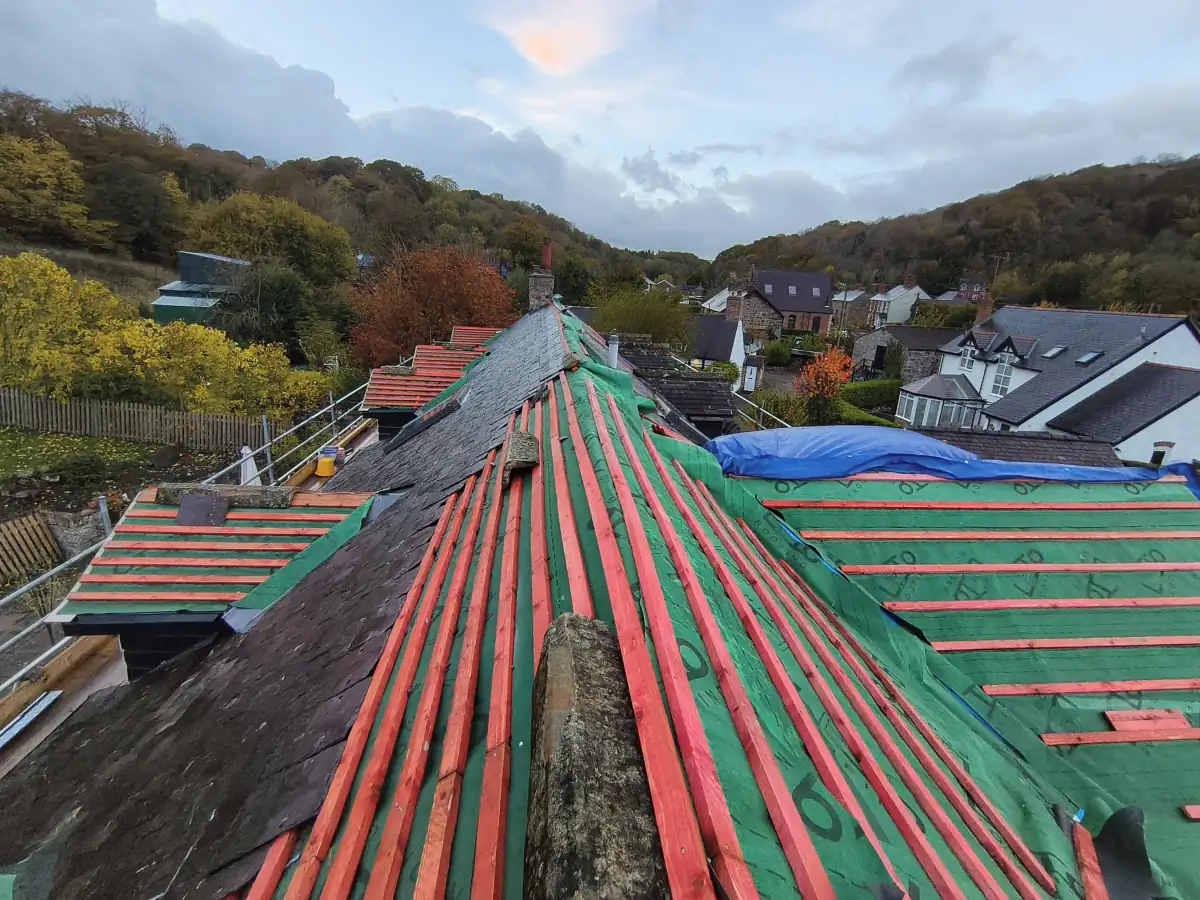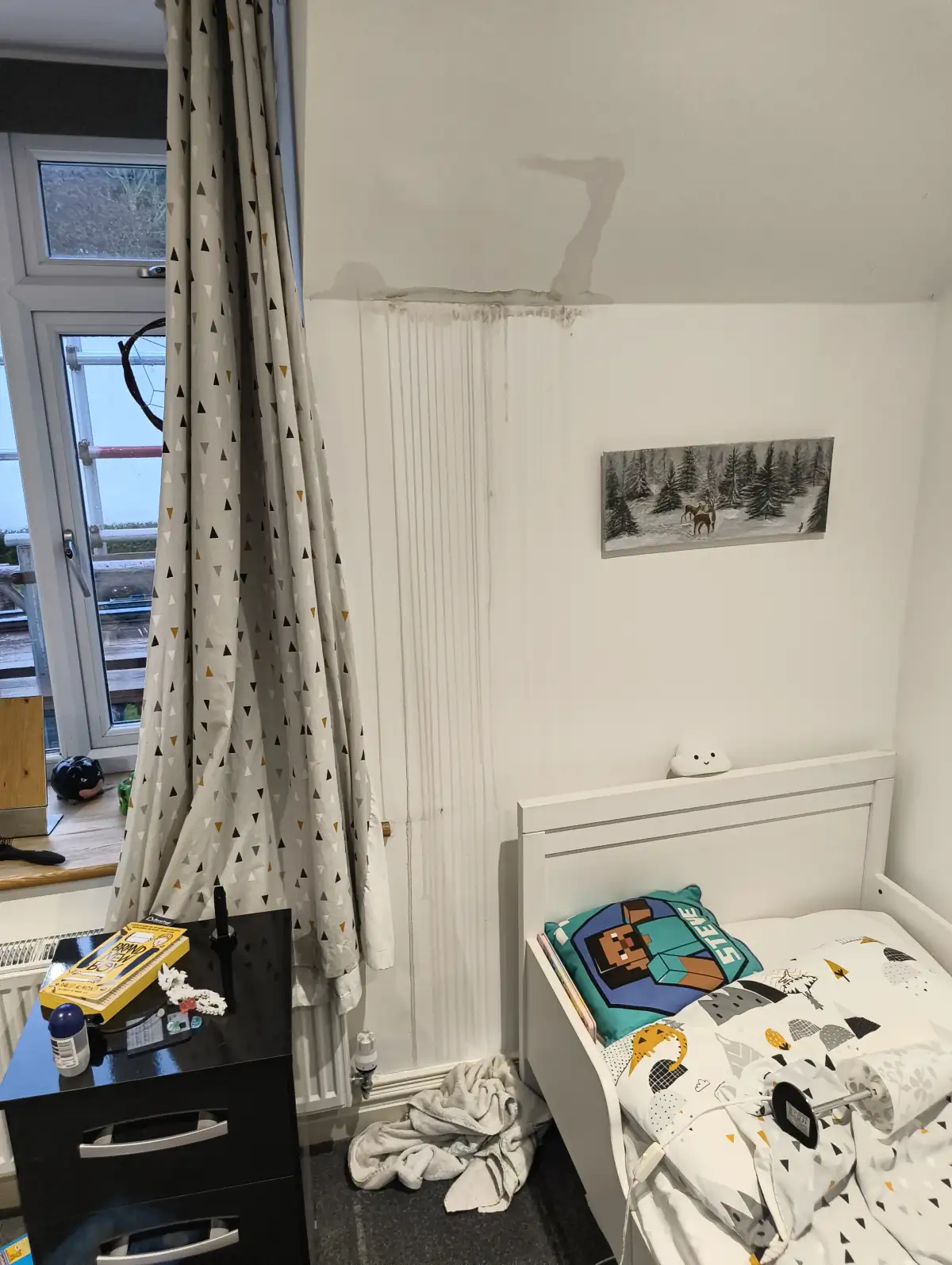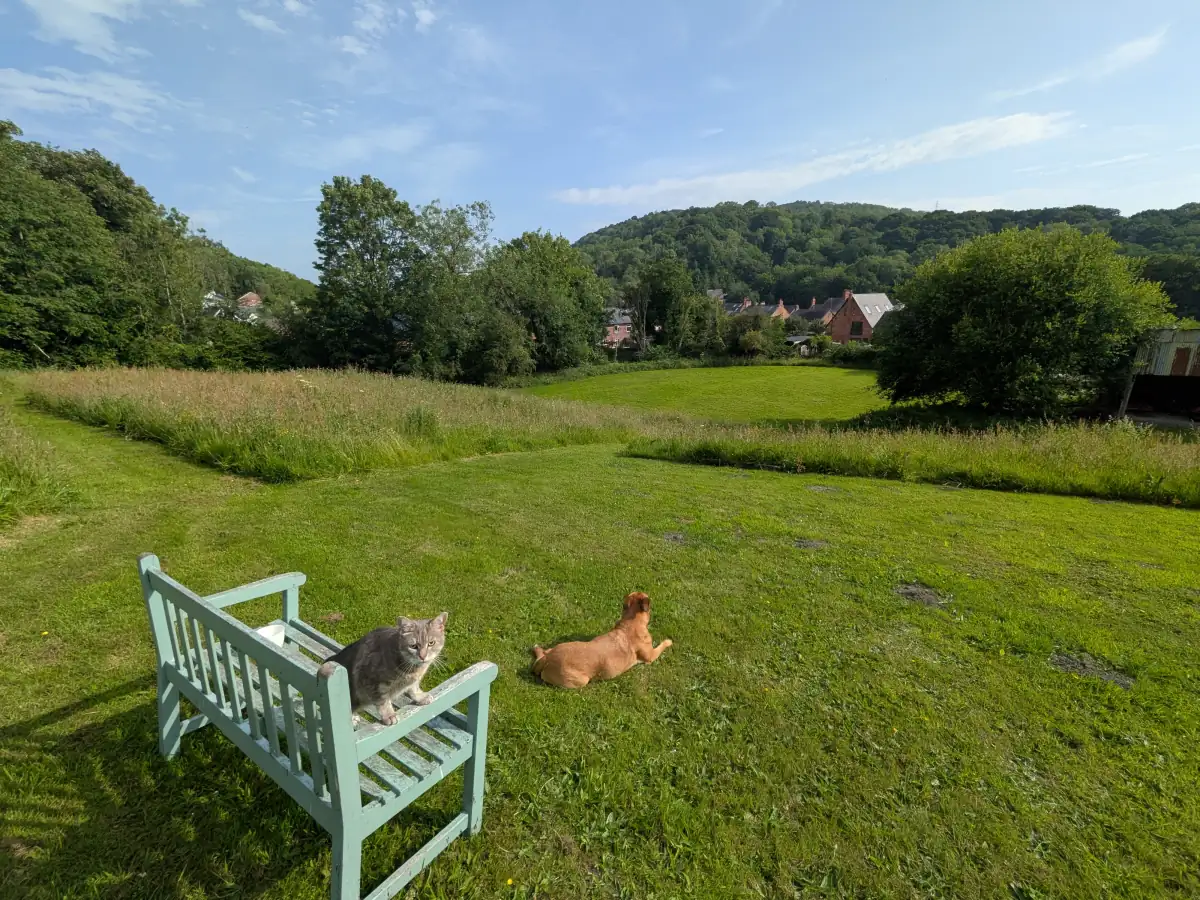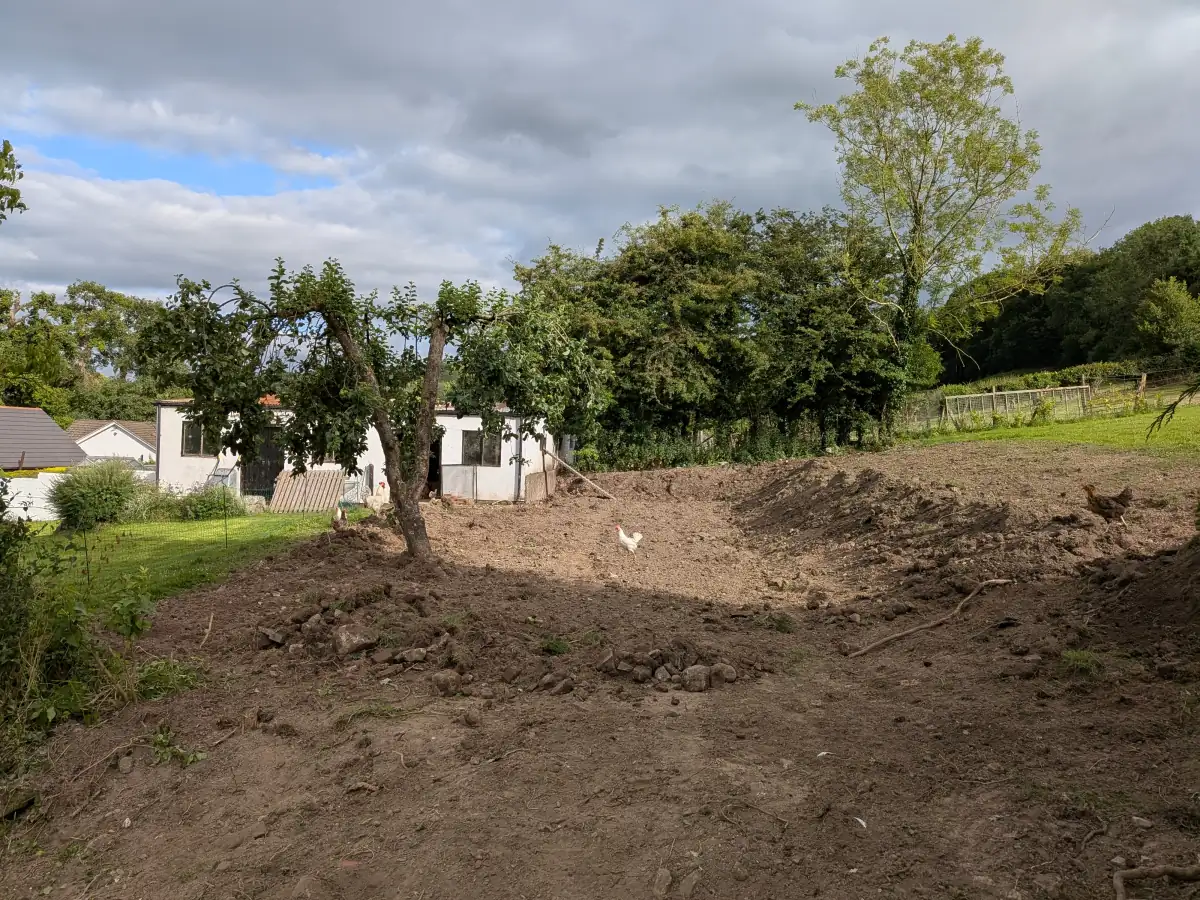We're been living on our smallholding in Wales for 3 years now. Here's how things have been going this year.
I’m a little late with my update this year because I’ve had a few things going on at home. This has accidentally become an annual tradition at this point, so I’m gonna roll with it.
I re-read last year’s update to see what I did and, more importantly, what I’d listed in the closing what’s next? section. It included:
- Renovating the brick shed on the drive into an annex for guests.
- Continuing to work on the garden.
- Insulating the roof in the conservatory.
- Two more bathrooms, a downstairs loo, and the kitchen.
Well, dear reader, most of that plan went to utter rat shit this year. Aside from continuing to work on the garden, we got absolutely nothing on the list done. That’s mainly because we ended up having to replace the entire roof on the house, which is still ongoing as I write this.

Worse still, because the new roof is heading into winter, we’ve had lots of rain. That in turn means leaks in the house, the worst of which has been in my oldest son’s bedroom. If you read last year’s post, you’ll recall we only renovated that room last year. 😡

If you’ve never had to put a new roof on your house, firstly you’re very lucky. But secondly, they’re really expensive. So that has meant we haven’t had any disposable income for other projects.
Making progress in the garden
We managed to plant some wildflowers in the far field, which one of our neighbours who keeps bees is very appreciative of.
 Wild flowers starting to come through in field
Wild flowers starting to come through in field
We also had a load of groundwork done at the back to flatten some of it off. They ended up moving 50 tonnes of soil from the area to make it level. Our hope is that this summer we’ll be able to enjoy drinks and barbecues on the new flat piece of land.

We’re also continuing to improve the chicken coop. We now have a fairly large enclosed outdoor space for them, mainly because of bird flu in the and the council applying restrictions on where they can roam. We’ve also grown the flock to 17 hens and a rooster.
Looking to year 4
The list for this year is going to be similar to last year’s. I just hope there will be fewer expensive surprises.
We’re hoping to add a polytunnel so we can grow more of our own vegetables. I’d also like to insulate the roof in the conservatory as it’ll effectively give us another room we can use all year round.
The bathrooms, toilet and kitchen will have to wait. We’ll just have to see how the cashflow looks. If next year I can get the polytunnel and conservatory done, I’ll class that as a win. I’d love to get a quad bike for towing the flail too, but again…money.
All in all it’s been a difficult year at the smallholding, but we have a new roof, so that’s good. I suppose…
Thanks for reading this post via RSS. RSS is great, and you're great for using it. ❤️
Reply to this post by email




 Wild flowers starting to come through in field
Wild flowers starting to come through in field
 I was able to use my Android phone to get on the NYC subway a few days ago. Turn the phone on, point it at the reader on the turnstyle, and just keep walking. It's that fast and a lot better than with the
I was able to use my Android phone to get on the NYC subway a few days ago. Turn the phone on, point it at the reader on the turnstyle, and just keep walking. It's that fast and a lot better than with the  I had to learn to be a developer if I wanted to make new media types out of computer networks, but soon it may not be necessary. We've been stuck in a rut of online sameness for a couple of decades now. One benefit of AI is the exclusivity that programmers have had, for all of history, is being broken. Thank goodness. It's way past time. (I hope.) It's also possible we're in the process of inventing
I had to learn to be a developer if I wanted to make new media types out of computer networks, but soon it may not be necessary. We've been stuck in a rut of online sameness for a couple of decades now. One benefit of AI is the exclusivity that programmers have had, for all of history, is being broken. Thank goodness. It's way past time. (I hope.) It's also possible we're in the process of inventing 


